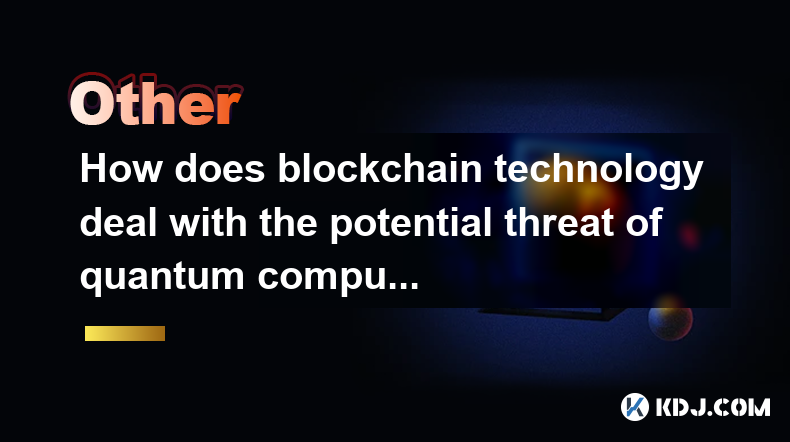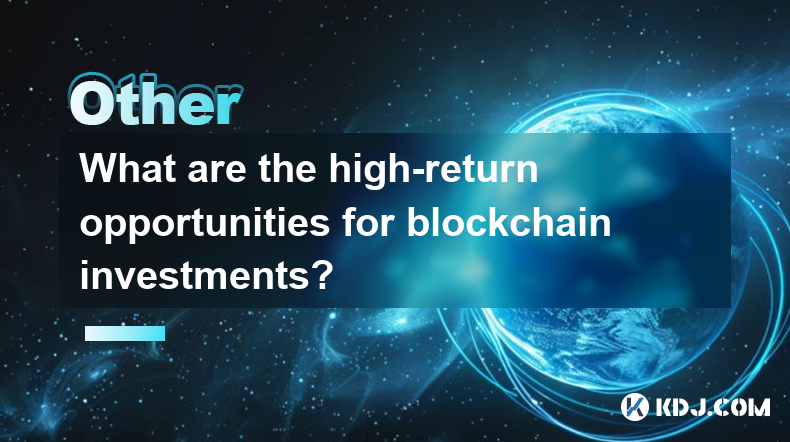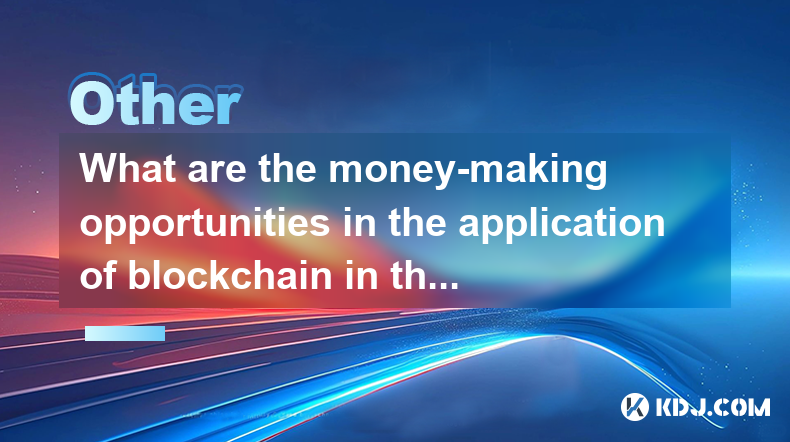-
 Bitcoin
Bitcoin $78,748.0325
-5.87% -
 Ethereum
Ethereum $1,601.5786
-11.64% -
 Tether USDt
Tether USDt $0.9995
-0.01% -
 XRP
XRP $1.9278
-10.45% -
 BNB
BNB $563.2751
-4.91% -
 USDC
USDC $1.0002
0.02% -
 Solana
Solana $107.0570
-11.34% -
 Dogecoin
Dogecoin $0.1502
-11.43% -
 TRON
TRON $0.2316
-2.13% -
 Cardano
Cardano $0.5804
-11.15% -
 UNUS SED LEO
UNUS SED LEO $8.8730
-2.96% -
 Chainlink
Chainlink $11.4151
-11.57% -
 Toncoin
Toncoin $2.9503
-9.14% -
 Stellar
Stellar $0.2279
-10.05% -
 Shiba Inu
Shiba Inu $0.0...01147
-7.08% -
 Avalanche
Avalanche $16.2365
-8.51% -
 Sui
Sui $1.9405
-12.37% -
 Hedera
Hedera $0.1418
-12.64% -
 MANTRA
MANTRA $6.1017
-2.53% -
 Polkadot
Polkadot $3.6809
-7.16% -
 Bitcoin Cash
Bitcoin Cash $275.5230
-9.51% -
 Litecoin
Litecoin $70.9988
-14.40% -
 Dai
Dai $1.0002
0.00% -
 Ethena USDe
Ethena USDe $0.9989
-0.03% -
 Bitget Token
Bitget Token $4.1440
-7.11% -
 Pi
Pi $0.5972
-6.51% -
 Monero
Monero $200.6546
-6.35% -
 Hyperliquid
Hyperliquid $10.5782
-12.35% -
 Uniswap
Uniswap $5.1904
-11.74% -
 OKB
OKB $53.0659
0.93%
How does blockchain technology deal with the potential threat of quantum computing?
Quantum computing threatens blockchain security by potentially breaking current cryptographic algorithms. The industry is responding with Post-Quantum Cryptography (PQC), hybrid approaches, hardware upgrades, and protocol updates to ensure long-term resilience.
Mar 02, 2025 at 06:12 pm

How Does Blockchain Technology Deal with the Potential Threat of Quantum Computing?
Key Points:
- Quantum Computing's Threat: Quantum computers, with their vastly superior processing power, pose a significant threat to the cryptographic algorithms underpinning many blockchains, potentially enabling the breaking of digital signatures and compromising the integrity of transactions.
- Post-Quantum Cryptography (PQC): The cryptocurrency industry is actively exploring and implementing Post-Quantum Cryptography (PQC) algorithms, which are designed to resist attacks from both classical and quantum computers. This is a crucial step in ensuring the long-term security of blockchain networks.
- Hybrid Approaches: Combining different cryptographic techniques, including PQC and classical algorithms, can offer a layered security approach, mitigating the risk of a single point of failure.
- Hardware Upgrades: Developing and integrating quantum-resistant hardware into blockchain systems will be essential to fully protect against future quantum threats. This includes specialized chips and secure elements.
- Protocol Upgrades: Updating blockchain protocols to incorporate PQC algorithms requires careful planning and implementation to avoid disrupting the network's functionality. This necessitates community consensus and thorough testing.
Unordered List of Detailed Steps:
- Understanding the Quantum Threat to Blockchain Security:
The security of most existing blockchain systems relies heavily on asymmetric cryptography, particularly the RSA and ECC (Elliptic Curve Cryptography) algorithms. These algorithms are computationally infeasible to break with classical computers, making them suitable for securing digital signatures, verifying transactions, and maintaining the integrity of the blockchain. However, the advent of quantum computing presents a significant challenge. Quantum computers leverage the principles of quantum mechanics to perform calculations in a fundamentally different way than classical computers. This allows them to solve certain types of problems, including factoring large numbers (crucial to breaking RSA) and solving the discrete logarithm problem (crucial to breaking ECC), exponentially faster than classical computers. If a sufficiently powerful quantum computer were built, it could potentially break the cryptographic algorithms used in many blockchains, leading to devastating consequences. This includes the ability to forge transactions, double-spend cryptocurrency, and compromise the entire network's integrity. The potential for such a breach necessitates proactive measures within the cryptocurrency industry to mitigate this emerging threat. The scale of the potential damage underscores the urgency of researching and implementing robust countermeasures, ensuring the long-term viability and trustworthiness of blockchain technology. The implications extend beyond financial losses; the disruption of trust in blockchain systems could have far-reaching consequences across various industries that rely on this technology.
- Post-Quantum Cryptography (PQC) as a Solution:
Post-Quantum Cryptography (PQC) refers to cryptographic algorithms designed to be secure against both classical and quantum computers. These algorithms are based on mathematical problems that are believed to be intractable even for quantum computers. The National Institute of Standards and Technology (NIST) has been leading a standardization effort for PQC algorithms, evaluating various candidates based on their security, performance, and practicality. The selection process is rigorous, involving extensive cryptanalysis and scrutiny from the global cryptographic community. Several promising PQC algorithms have emerged, including lattice-based cryptography, code-based cryptography, multivariate cryptography, and hash-based cryptography. Each approach offers unique strengths and weaknesses, and the optimal choice for a particular blockchain application depends on factors such as security requirements, performance constraints, and implementation complexity. Integrating PQC into existing blockchain systems requires careful consideration of various factors, including the algorithm's security level, its performance impact on transaction processing speed, and the compatibility with existing infrastructure. A phased approach, starting with pilot programs and gradual migration, is often recommended to minimize disruption and ensure a smooth transition. Furthermore, continuous monitoring and evaluation of the selected PQC algorithms are essential to identify and address any potential vulnerabilities that might be discovered in the future.
- Hybrid Cryptographic Approaches:
Implementing a solely PQC-based system might not be immediately feasible for all blockchains due to various constraints. A more practical approach might involve hybrid cryptography, combining both classical and PQC algorithms. This layered security model leverages the strengths of each approach, creating a more resilient system. For example, a blockchain could use a classical algorithm for fast, everyday transactions and a PQC algorithm for higher-value transactions or long-term security needs like securing digital signatures for crucial governance decisions. This strategy mitigates the risk of a single point of failure. If one algorithm is compromised, the other layer provides an additional safeguard. Careful consideration must be given to the interaction between the classical and quantum-resistant algorithms to avoid introducing new vulnerabilities. The design of the hybrid system needs to be thoroughly analyzed to ensure that the combination of algorithms doesn't weaken the overall security. Moreover, efficient and secure integration of both types of algorithms is crucial for seamless operation without compromising performance. The choice of which algorithm is used for which purpose will depend on various factors, including the specific security requirements of the application, the performance characteristics of the algorithms, and the overall system architecture.
- Hardware-Level Security Enhancements:
While software-level implementation of PQC is crucial, hardware-level security enhancements are equally important. Specialized hardware, such as quantum-resistant cryptographic chips and secure elements, can significantly enhance the security of blockchain systems. These hardware components can provide tamper-proof environments for cryptographic operations, protecting the private keys and sensitive data from physical attacks and side-channel attacks. The development and integration of such hardware into blockchain systems are complex undertakings requiring significant investment in research and development. The cost of implementing these hardware solutions might initially be high, but the long-term benefits in terms of enhanced security are likely to outweigh the costs. Furthermore, standardization efforts are needed to ensure interoperability between different hardware platforms and to prevent vendor lock-in. The integration of quantum-resistant hardware needs to be carefully planned and implemented to ensure compatibility with existing software and infrastructure. This requires close collaboration between hardware manufacturers, software developers, and the blockchain community.
- Protocol Upgrades and Community Consensus:
Implementing PQC or any significant security upgrade requires careful planning and execution. It's not simply a matter of replacing one algorithm with another. Blockchain protocols are complex systems, and changes require extensive testing and validation to ensure that the upgrade doesn't introduce unintended vulnerabilities or break existing functionality. Moreover, achieving consensus within the blockchain community is crucial for a smooth transition. The process usually involves a series of testnet deployments, community discussions, and potentially hard forks to implement the changes across the network. The complexity of the process highlights the need for collaboration and coordination among developers, miners, and users. A well-defined roadmap and clear communication are essential to maintain community trust and ensure a successful upgrade. Failure to achieve consensus could lead to network fragmentation or other undesirable outcomes. Therefore, a transparent and collaborative approach is essential for the successful implementation of PQC upgrades in blockchain systems.
FAQs:
Q: What is the biggest threat posed by quantum computing to blockchain technology?
A: The biggest threat is the potential for quantum computers to break the widely used cryptographic algorithms (RSA and ECC) that secure transactions and digital signatures on most blockchains. This could lead to the compromise of private keys, allowing malicious actors to steal funds, forge transactions, and disrupt the entire network.
Q: How long before quantum computers pose a real threat to blockchain security?
A: This is difficult to predict with certainty. While large-scale, fault-tolerant quantum computers capable of breaking current cryptographic algorithms are not yet available, significant progress is being made. Estimates range from a few years to several decades, but proactive measures are essential to prepare for this potential threat.
Q: Are all blockchains equally vulnerable to quantum computing attacks?
A: Not all blockchains are equally vulnerable. The level of vulnerability depends on the specific cryptographic algorithms used, the implementation details, and the overall architecture of the blockchain. Some blockchains might already be using more quantum-resistant algorithms or be exploring post-quantum cryptography solutions more actively than others.
Q: What are the potential costs associated with upgrading blockchain systems to be quantum-resistant?
A: The costs can be substantial, including research and development costs for new algorithms, software development costs for integrating PQC, hardware upgrades for quantum-resistant chips, and potential network disruptions during the transition. However, the cost of inaction—the potential losses from a successful quantum attack—could be far greater.
Q: Is there a single "best" Post-Quantum Cryptography algorithm?
A: There is no single "best" algorithm. Different algorithms offer different trade-offs between security, performance, and implementation complexity. The choice of algorithm will depend on the specific requirements of the blockchain system. NIST's standardization process aims to provide a selection of algorithms suitable for various applications.
Disclaimer:info@kdj.com
The information provided is not trading advice. kdj.com does not assume any responsibility for any investments made based on the information provided in this article. Cryptocurrencies are highly volatile and it is highly recommended that you invest with caution after thorough research!
If you believe that the content used on this website infringes your copyright, please contact us immediately (info@kdj.com) and we will delete it promptly.
- 4 Best Cryptos to Buy That Could Deliver High Potential Returns
- 2025-04-07 10:15:25
- Nexus Partners with Orochi Network to Deliver a Verifiable Internet on Web3
- 2025-04-07 10:15:25
- XRP Has Found Itself Back in the Spotlight as Market Momentum Builds
- 2025-04-07 10:10:11
- As we enter Q2 of 2025, the global crypto market finds itself steering a complex intersection of macroeconomic and geopolitical pressures.
- 2025-04-07 10:10:11
- Mutuum Finance (MUTM) Quietly Rallies 25% as It Enters the Next Phase of Its Presale
- 2025-04-07 10:05:12
- Intercontinental Exchange Inc. Has Announced That It Signed a Memorandum of Understanding with Circle Internet Group, Inc.
- 2025-04-07 10:05:12
Related knowledge

Is the ranking of Chinese blockchain apps real and reliable?
Apr 04,2025 at 09:01pm
The ranking of Chinese blockchain apps has become a topic of interest for many in the cryptocurrency community, as it provides insights into the popularity and adoption of blockchain technology within China. However, the reliability and authenticity of these rankings are often questioned. This article aims to delve into the factors that influence these ...

What are the future development trends of blockchain game development?
Apr 03,2025 at 05:00am
Blockchain technology has revolutionized various industries, and gaming is no exception. As we look to the future, several trends are set to shape the development of blockchain games. These trends not only promise to enhance the gaming experience but also to integrate blockchain technology more seamlessly into the gaming ecosystem. Let's explore these t...

What are the high-return opportunities for blockchain investments?
Apr 05,2025 at 02:35pm
Blockchain technology has revolutionized the financial world, offering numerous high-return investment opportunities. These opportunities span various sectors within the cryptocurrency ecosystem, including cryptocurrencies, decentralized finance (DeFi), non-fungible tokens (NFTs), and blockchain startups. Each of these areas presents unique risks and re...

What are the maintenance costs of blockchain system development?
Apr 03,2025 at 06:07pm
The maintenance costs of blockchain system development are multifaceted and depend on various factors. These costs can include technical maintenance, security updates, infrastructure expenses, and personnel costs. Understanding these elements is crucial for anyone planning to develop or maintain a blockchain system. Technical MaintenanceTechnical mainte...

What are the money-making models of blockchain games?
Apr 04,2025 at 02:00pm
Blockchain games have emerged as a revolutionary way for players to earn real money while enjoying their favorite pastime. These games leverage the power of blockchain technology to create unique money-making models that benefit both the players and the developers. In this article, we will explore the various money-making models of blockchain games and ...

What are the money-making opportunities in the application of blockchain in the field of Internet of Things?
Apr 05,2025 at 10:35pm
The integration of blockchain technology with the Internet of Things (IoT) presents numerous money-making opportunities. Blockchain, with its decentralized and secure nature, can revolutionize how IoT devices interact, manage data, and conduct transactions. This article will explore various avenues where entrepreneurs, developers, and investors can capi...

Is the ranking of Chinese blockchain apps real and reliable?
Apr 04,2025 at 09:01pm
The ranking of Chinese blockchain apps has become a topic of interest for many in the cryptocurrency community, as it provides insights into the popularity and adoption of blockchain technology within China. However, the reliability and authenticity of these rankings are often questioned. This article aims to delve into the factors that influence these ...

What are the future development trends of blockchain game development?
Apr 03,2025 at 05:00am
Blockchain technology has revolutionized various industries, and gaming is no exception. As we look to the future, several trends are set to shape the development of blockchain games. These trends not only promise to enhance the gaming experience but also to integrate blockchain technology more seamlessly into the gaming ecosystem. Let's explore these t...

What are the high-return opportunities for blockchain investments?
Apr 05,2025 at 02:35pm
Blockchain technology has revolutionized the financial world, offering numerous high-return investment opportunities. These opportunities span various sectors within the cryptocurrency ecosystem, including cryptocurrencies, decentralized finance (DeFi), non-fungible tokens (NFTs), and blockchain startups. Each of these areas presents unique risks and re...

What are the maintenance costs of blockchain system development?
Apr 03,2025 at 06:07pm
The maintenance costs of blockchain system development are multifaceted and depend on various factors. These costs can include technical maintenance, security updates, infrastructure expenses, and personnel costs. Understanding these elements is crucial for anyone planning to develop or maintain a blockchain system. Technical MaintenanceTechnical mainte...

What are the money-making models of blockchain games?
Apr 04,2025 at 02:00pm
Blockchain games have emerged as a revolutionary way for players to earn real money while enjoying their favorite pastime. These games leverage the power of blockchain technology to create unique money-making models that benefit both the players and the developers. In this article, we will explore the various money-making models of blockchain games and ...

What are the money-making opportunities in the application of blockchain in the field of Internet of Things?
Apr 05,2025 at 10:35pm
The integration of blockchain technology with the Internet of Things (IoT) presents numerous money-making opportunities. Blockchain, with its decentralized and secure nature, can revolutionize how IoT devices interact, manage data, and conduct transactions. This article will explore various avenues where entrepreneurs, developers, and investors can capi...
See all articles





















































































